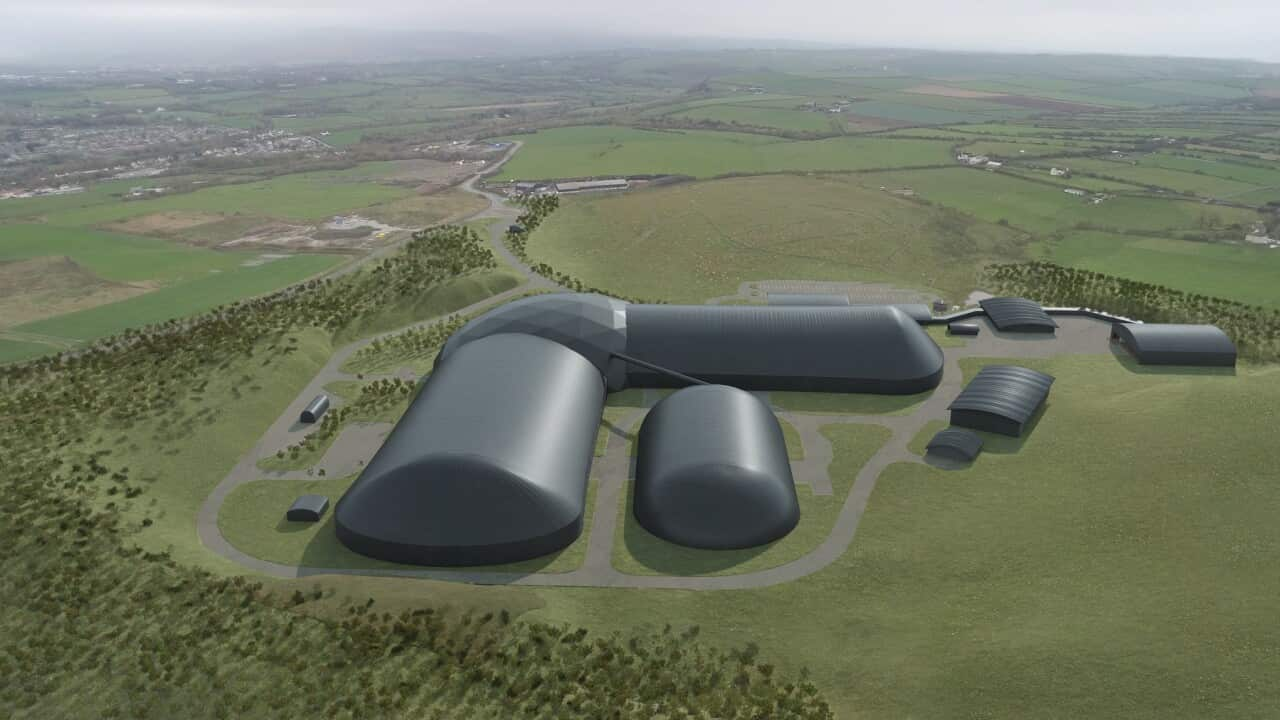The United Nations climate summit in Glasgow is fast approaching, and while Prime Minister Scott Morrison has now confirmed he will attend, it remains unclear whether he will commit Australia to net zero emissions by 2050.
Fossil fuels will be a major theme of the COP26 conference which begins on 31 October, and Australia's reliance on coal is likely to be scrutinised by international leaders.
But there are fears among regional communities that a potential phase-down of the industry would affect coal-mining towns, including Singleton in the NSW Hunter region.
Questions over the future of coal loom large in Singleton, a town where generations of locals have earned a decent paycheck in the mines. Singleton local Murray has been employed in the industry for the past 20 years.
Singleton local Murray has been employed in the industry for the past 20 years.

The NSW Hunter region is home to many coal-mining towns. Source: SBS News
Coal-based employment runs in the family, his father having also worked in the mines.
"It's not just the direct employment in the mining industry, it's the flow-on effect of all the support businesses,” Murray said.
“If the mines closed, [Singleton] probably wouldn't exist.”
In Singleton and other towns across the Hunter's sprawling valleys, coal remains a key source of income, providing more than a third of the jobs in the region. There are around 17 active coal mines in Singleton, and Mayor Sue Moore says while some are nearing the end of their lifespan, others have licences to operate for decades.
There are around 17 active coal mines in Singleton, and Mayor Sue Moore says while some are nearing the end of their lifespan, others have licences to operate for decades.

Singleton miner Murray says the town relies on the operation of coal to function. Source: Abbie O'Brien/SBS News
Like many locals, Ms Moore accepts change is coming but has confirmed coal will remain in the Hunter for some time.
"Many of these mines have approval for another 20 years, many are still getting extensions. So it's not about coal mining closing tomorrow,” she said. But Professor Will Steffen from the Climate Council believes the end of coal could come sooner than expected, particularly if Mr Morrison commits Australia to net zero.
But Professor Will Steffen from the Climate Council believes the end of coal could come sooner than expected, particularly if Mr Morrison commits Australia to net zero.

Singleton mayor Sue Moore believes change needs to occur now. Source: SBS News
"As we realise how severe the climate issue is, how serious the risks are, we may want to ramp up the speed at which we phase out fossil fuels which means we may need to close them earlier than is planned now,” he said.
Departing Hunter MP Joel Fitzgibbon claims a net zero target should not affect the industry, with almost 90 per cent of the coal mined in the Hunter Valley exported and burned in Asia.
"Closing coal mines in the Hunter would be disastrous for the regional economy and for jobs, but nothing we do in Glasgow will require us to close our coal mines. Most of our coal, the overwhelming majority, is going to export market,” Mr Fitzgibbon said.
But Professor Steffen argues where the coal is burned is irrelevant, saying Australia should be prioritising the transformation of its energy sector.
"It's no good hiding behind 'someone else is going to burn it'. We have control over that and we do not have to mine it and export it," he said.
Australia should instead "develop our renewable energy sector much more rapidly” to replace the coal industry, Professor Steffen said.
Many industries in the Hunter are already preparing for a future without coal with the help of a community and union coalition called the Hunter Jobs Alliance, which was formed last year to campaign for sustainable employment. The organisation’s coordinator Warwick Jordan says many in the region recognise there's a need to transition.
The organisation’s coordinator Warwick Jordan says many in the region recognise there's a need to transition.

Coordinator of Hunter Jobs Alliance Warwick Jordan says the industry needs to accept change. Source: SBS News
"A lot of people see what's coming down the line in terms of big structural economic changes but we also know that there are huge opportunities,” he said.
Local manufacturing company Ampcontrol has been a large supplier to the resources sector for decades but the business model is now shifting.
"We will re-train a lot of our people into more of the renewable spaces, but there will also be opportunities for graduates in other skills and trades to come through,” the firm's CEO Rod Henderson said. “We're already seeing that we've moved a number of people out of the mining space and into the energy space.”
“We're already seeing that we've moved a number of people out of the mining space and into the energy space.”

CEO of AMPControl Rod Henderson is transitioning his business model away from fossil fuels. Source: SBS News
Ms Moore says locals get nervous when they hear the word "transition".
"Especially around the coal mining industry, they wonder where their jobs will be. So we'd much rather use the term 'economic evolution',” she said.
And though it won't happen overnight, Ms Moore believes it is possible for the region to adapt with the help of state and federal governments, but says the planning needs to start sooner rather than later.











